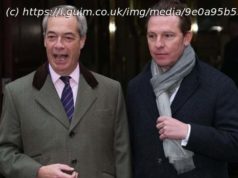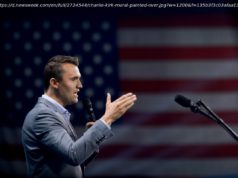Howard Schultz said Monday he would step down from his role as executive chairman of Starbucks, effective June 26.
Amid speculation about a possible run for president, outgoing Starbucks Chairman Howard Schultz declined to talk specifically about his next step.
«There’s a lot of things I can do as a private citizen other than run for the presidency of the United States,» Schultz said on CNBC’s «Squawk Box» Tuesday. «Let’s just see what happens.»
«I don’t know what that means right now,» he said. «But my concern for the country and the standing in the world, the lack of dignity, lack of respect coming from the administration. I think we can do much better.»
The extensive interview, which followed Schultz’s decision Monday to step down as executive chairman of Starbucks later this month, touched on a number of issues from the need to improve education and trim the ballooning national debt to Schultz’s view on the markets and trade policy.
Schultz said he had been planning this move for over a year, but his resignation was delayed by an incident in Philadelphia where two black men were arrested at one of the company’s cafes. Starbucks met with the men after the incident and last week closed its shops one afternoon to provide its staff with racial bias training.
After fulfilling that obligation, he said it was the «right time» to leave.
«The company’s in a great position and it’s always been a team sport,» Schultz said.
Over the last 40 years at Starbucks, Schultz pushed to give opportunities to veterans and refugees and expanded health benefits and college tuition assistance to workers. All the while, Starbucks stock grew 21,000 percent since its initial public offering in 1992. On Tuesday, he reiterated how important these issues are to him.
He said he felt taking those steps added value to the company’s brand image.
«It speaks to the fact that rules of engagement for a public company and CEO are different today,» he said. «In large part because it has been so polarized.»
According to Schultz, the litmus test for him as always been: «does this decision, this policy make our customers and our people proud, and if the answer is yes, then we were on the right side of the debate. If it’s not, we shouldn’t do it. We’re not in this to be political, we’re in this to advance Starbucks.»
In recent years, Schultz has been taking a more active role in politics. Using his high profile at Starbucks, he has spoken out about the role public companies can play by being socially responsible in a changing society, and plans to write a book on this topic. That has fanned speculation that he might run for office.
But on Tuesday, he said «I can’t be nailed down today on the specifics of what I might or might not run for.»
That said, he was willing to discuss in detail his thoughts on a number of important political issues, and kept up his criticism of President Donald Trump.
«I think the issues that we are facing in terms of the dysfunction and polarization that exists within the government is really based on a systematic problem of ideology and I think we need a very different view of how the government and how the country should be run,» Schultz said Tuesday.
«It’s been a long time, I think, since anyone within the government has really walked in the shoes of the American people and done the things that would demonstrate the humanity of what is the values of the country and the guiding principle of the promise of America,» Schultz said.
One of his key concerns was the administration adding to U. S. debt levels, which he called «reckless.»
«We are going to pay for this in terms of the next generation and it’s unfair,» he said.
However, he also had critiques for the Democratic Party as well, saying it had veered too far to the left and was overpromising on programs that aren’t fiscally responsible.
He noted that the vast majority of Americans want good immigration policy and better policy on guns, but the government hasn’t moved forward on these issues.
On immigration, Schultz said that he didn’t think the current policy was very «humane.»
«I think we need border security,» he said. «But there’s a lot of non-truths. As an example, two-thirds of the undocumented people were talking about are not people that have crossed a border. They’re here because their visa has expired.»
The polarization of the current political conversation and the need for corporate responsibility were to themes Schultz kept coming back to. For example, in regard to recent corporate tax cuts, he said he had anticipated many companies would take the windfall from the tax cuts and plow it into stock buybacks and other actions to benefit shareholders, but Starbucks opted to return nearly 50 percent of its benefits to its workers.
«When you’re building a great enduring company, not every business decision should be and is an economic one,» he said. That can be, he admitted, a hard message to commute on Wall Street, but the goal should be «building a great enduring company.»






